International
The Government of Colombia clarifies that the dialogue with the ELN guerrillas “is suspended” after the attack
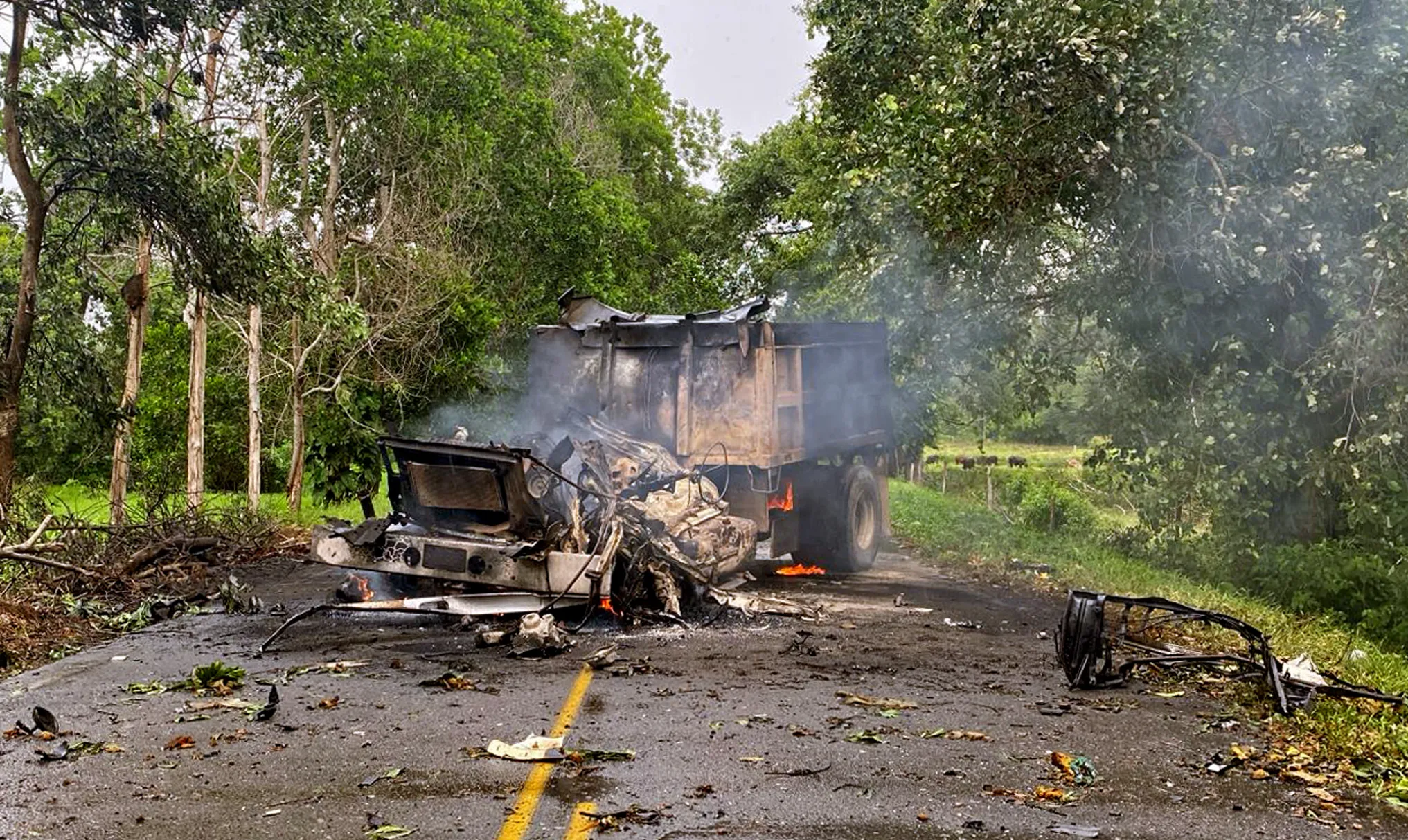
The Government of Colombia confirmed on Wednesday that the peace dialogue with the guerrillas of the National Liberation Army (ELN) “is suspended” after the attack by that armed group against an Army military base in the department of Arauca, in the east of the country, which left two dead and 27 injured.
The Government delegation at the dialogue table clarified in this way what was said on Tuesday night by President Gustavo Petro, who declared that the attack “closes a peace process with blood.”
“During these months the Government has sent multiple proposals to the ELN. Today the dialogue process is suspended. Its viability is severely damaged, and its continuity can only be recovered with an unequivocal manifestation of the will for peace of the ELN,” the delegation added in a statement, which did not completely close the door to the process.
In the letter they also expressed their “absolute rejection of the attack perpetrated by the ELN on the military base of Puerto Jordán, Arauca” and showed their condolences to the families of the victims “in the face of this new act of violence that claims the lives of young Colombians.”
The Colombian Government and the ELN restarted in November 2022 in Caracas the peace negotiations with the last major Latin American guerrilla that, however, stagnated at the beginning of this year due to the demands of the ELN that the Executive remove them from the list of terrorist groups and abandon the regional dialogue it maintains in the department of Nariño (southwest) with Comuneros del Sur, supposedly split from the ELN.
During the various cycles of negotiations in Caracas, Havana and Mexico City, the parties reached several partial agreements and agreed on a one-year bilateral ceasefire, the longest maintained with that guerrilla, which ended on August 3, after which the ELN resumed its attacks against public force and infrastructure in different parts of the country, especially in Arauca, where it is particularly strong.
Petro compared Tuesday’s attack to the attack on the Colombian Police Cadet School in Bogotá, which in January 2019 left 20 dead and 68 injured, including an Ecuadorian cadet, and which put an end to the dialogue that the Government was having with that guerrilla at that time.
“And obviously, as happened that time in another place near here, at the Police School, because many police officers died, ensigns who were studying there, because it is practically an action that closes a peace process with blood,” he added.
On that occasion, the government of Iván Duque broke off peace negotiations with the guerrillas.
Tuesday’s attack was at the Puerto Jordán military base, in Arauca (east), which “was attacked with improvised explosive devices launched from a dump mantip.”
According to figures provided by the Ministry of Defense, 27 soldiers were injured, “of which 20 have splinters” and seven are “seriously injured.” Two of the injured died on Tuesday night.
The violent escalation of the ELN left two soldiers dead last Sunday in a rural area of Tame (Arauca) and also includes attacks on the Caño Limón-Coveñas and Bicentenario pipelines, two of the most important in the country.
The Caño Limón-Coveñas pipeline, 770 kilometers long, transports oil from the Arauca wells to Coveñas, a Colombian port in the Caribbean Sea.
International
U.S. to suspend visa processing for applicants from 75 countries

The United States announced on Wednesday that it will suspend visa processing for applicants from 75 nationalities, marking another move by President Donald Trump’s administration to curb the entry of migrants into the country.
“ The United States is freezing the processing of all visas for 75 countries, including Somalia, Russia and Iran,” White House Press Secretary Karoline Leavitt wrote on X. According to Fox News, the measure will take effect on January 21 and will remain in force indefinitely.
Based on an internal State Department memorandum obtained by Fox News Digital, consular officers have been instructed to deny visa applications under existing law while the agency conducts an in-depth review of screening and vetting procedures. The stated goal is to tighten criteria to prevent the entry of foreigners who could eventually rely on public assistance.
The list of affected countries includes several nations in Latin America and the Caribbean, as well as Afghanistan, Russia, Iran, Iraq, Egypt, Nigeria, Thailand, Somalia and Yemen, among others. Fox News reported that exemptions to the suspension will be “very limited” and will only be granted once applicants pass an assessment related to the public charge requirement.
Other countries in the Americas subject to the suspension include Antigua and Barbuda, the Bahamas, Barbados, Belize, Cuba, Dominica, Grenada, Guatemala, Haiti, Jamaica, Nicaragua, Saint Kitts and Nevis, Saint Lucia, and Saint Vincent and the Grenadines.
The decision is based on a strict interpretation of the so-called “public charge” clause of U.S. immigration law. A cable sent to U.S. consulates worldwide in November 2025 had already signaled the shift, instructing officials to apply tougher standards when evaluating applicants, taking into account factors such as age, health status, English proficiency, financial situation, history of public assistance, and even the potential need for long-term medical care.
International
Peruvian Court Orders Definitive Dismissal of Money Laundering Case Against Keiko Fujimori

A court of Peru’s National Superior Court of Specialized Criminal Justice ordered the definitive dismissal of the criminal proceedings for alleged money laundering and criminal organization against presidential candidate Keiko Fujimori, authorities reported on Tuesday, January 13, 2026.
The ruling was issued by the Tenth National Preparatory Investigation Court in compliance with a previous decision by the Constitutional Court (TC). The decision was confirmed by Fujimori’s attorney, Giuliana Loza, who said on social media platform X that “there was no money laundering nor criminal organization.”
According to the defense, the case was closed for lacking legal grounds and for violating due process. “The proceedings concluded because they lacked a legal basis and constituted clear prosecutorial persecution,” Loza stated.
Judge Wilson Verastegui, whose ruling was reported by local media, said the Constitutional Court determined that the facts alleged in the so-called ‘Cocktails Case’ do not constitute a criminal offense under the principle of legality. The court noted that the crime of illegal financing of political organizations was not in force at the time the alleged acts occurred.
The dismissal also applies to other leaders of the Fuerza Popular party, including Pier Figari, Ana Rosa Herz, Jaime Yoshiyama and José Chlimper, as well as the party itself.
Keiko Fujimori, daughter of former president Alberto Fujimori (1990–2000), had been under investigation for the alleged irregular financing of her 2011 and 2016 presidential campaigns, a case that exposed her to a possible 30-year prison sentence. However, one year ago the National Superior Court annulled the trial and returned the case to the intermediate stage.
Fujimori is currently pursuing her fourth presidential bid, ahead of Peru’s general elections scheduled for April.
International
Colombian Defense Chief Meets U.S. Officials to Advance Bilateral Narcotics Strategy
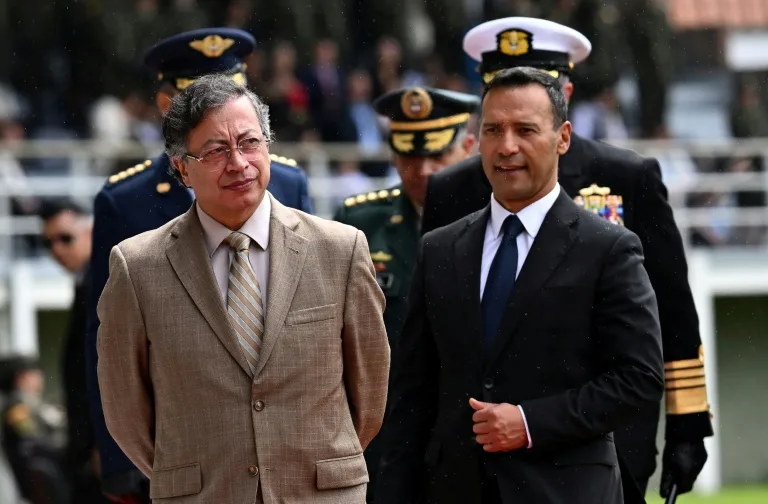
Colombia’s Minister of Defense, Pedro Sánchez Suárez, is in the United States this Tuesday and Wednesday to discuss bilateral cooperation in the fight against drug trafficking, Colombian officials said, in a visit that comes as ties between Bogotá and Washington begin to ease after a period of diplomatic tension.
The trip is seen as a prelude to a scheduled visit by Colombian President Gustavo Petro to Washington, where he is expected to meet U.S. President Donald Trump for the first time in early February. Sánchez will remain in Washington through Wednesday, according to Colombian government sources.
During his stay, Sánchez is slated to meet with senior U.S. officials, including representatives from the Department of Defense, members of the U.S. Senate, and White House advisors, to outline a joint strategy to “defeat drug trafficking” and expand cooperation on intelligence against transnational crime.
According to a statement from the Colombian Defense Ministry, the agenda will include strengthening collaboration on technology, intelligence sharing, and efforts to disrupt criminal networks that operate across borders. Officials said the discussions will also help set the stage for Petro’s upcoming talks with Trump.
The visit follows a period of strained U.S.–Colombia relations last year, when Washington revoked Petro’s visa and withdrew Colombia’s certification as a key partner in anti-drug efforts — moves that coincided with disagreements over counter-narcotics strategy and broader diplomatic frictions. However, a recent phone call between Petro and Trump, described as cordial by officials, helped lower tensions and reopened channels for dialogue ahead of the presidential meeting.
-

 International1 day ago
International1 day agoDeadly van accident near Brazil border leaves 11 dead in Bolivia
-
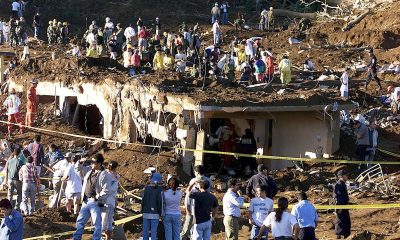
 Central America1 day ago
Central America1 day agoTaiwan’s $10 million donation after 2001 earthquakes allegedly diverted in El Salvador
-
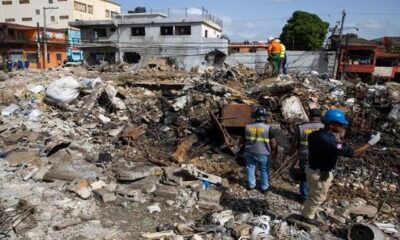
 International1 day ago
International1 day agoDominican court postpones hearing in deadly nightclub collapse case
-

 Central America1 day ago
Central America1 day agoU.S. and El Salvador maintain close partnership, embassy says
-

 International1 day ago
International1 day agoU.S. to host Danish and Greenlandic Foreign Ministers at the White House
-

 International1 day ago
International1 day agoPolice hunt gunmen after fatal shooting in Corsica
-

 International1 day ago
International1 day agoVenezuelan opposition leader dedicates Nobel Prize to Trump
-
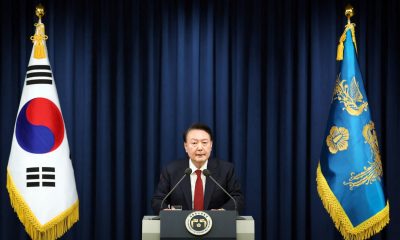
 International1 day ago
International1 day agoEx-President accused of bid to establish dictatorship as verdict nears in South Korea
-
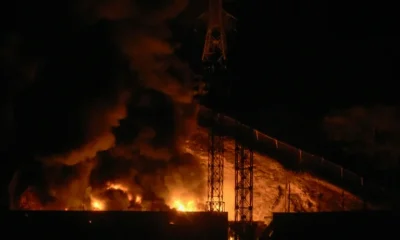
 International4 days ago
International4 days agoU.S. strike in Caracas killed 32 cuban security officers, experts say surprise was crucial
-

 International3 days ago
International3 days agoU.S. Issues Urgent Evacuation Call for Citizens in Venezuela
-
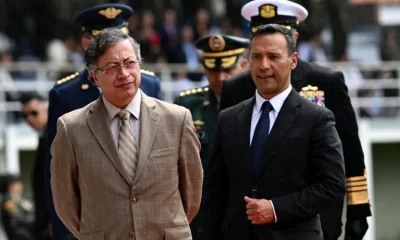
 International10 hours ago
International10 hours agoColombian Defense Chief Meets U.S. Officials to Advance Bilateral Narcotics Strategy
-

 International10 hours ago
International10 hours agoPeruvian Court Orders Definitive Dismissal of Money Laundering Case Against Keiko Fujimori
-

 Central America1 hour ago
Central America1 hour agoBukele warns crime can become a ‘parallel government’ during visit to Costa Rica
-

 International60 minutes ago
International60 minutes agoU.S. to suspend visa processing for applicants from 75 countries


























